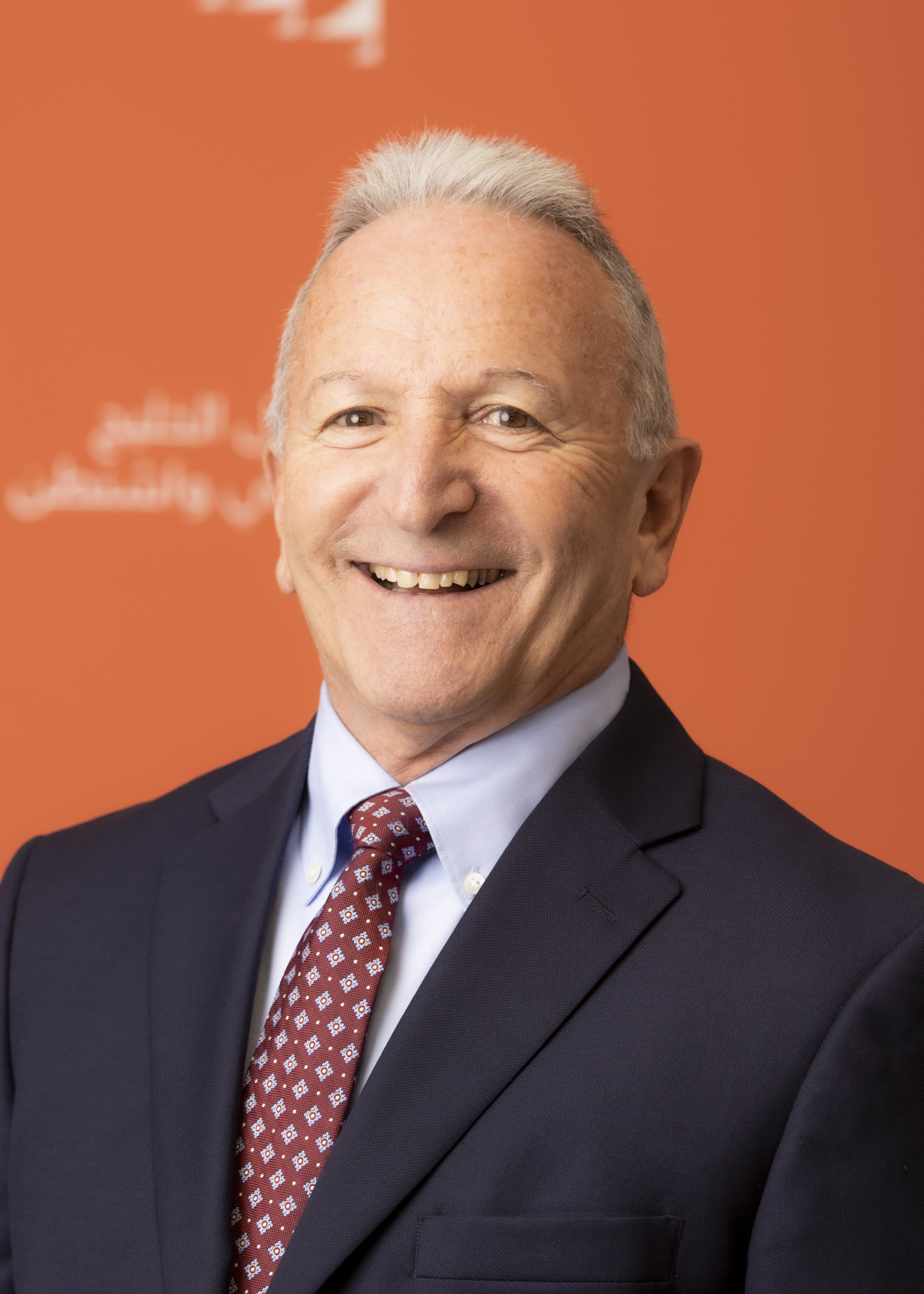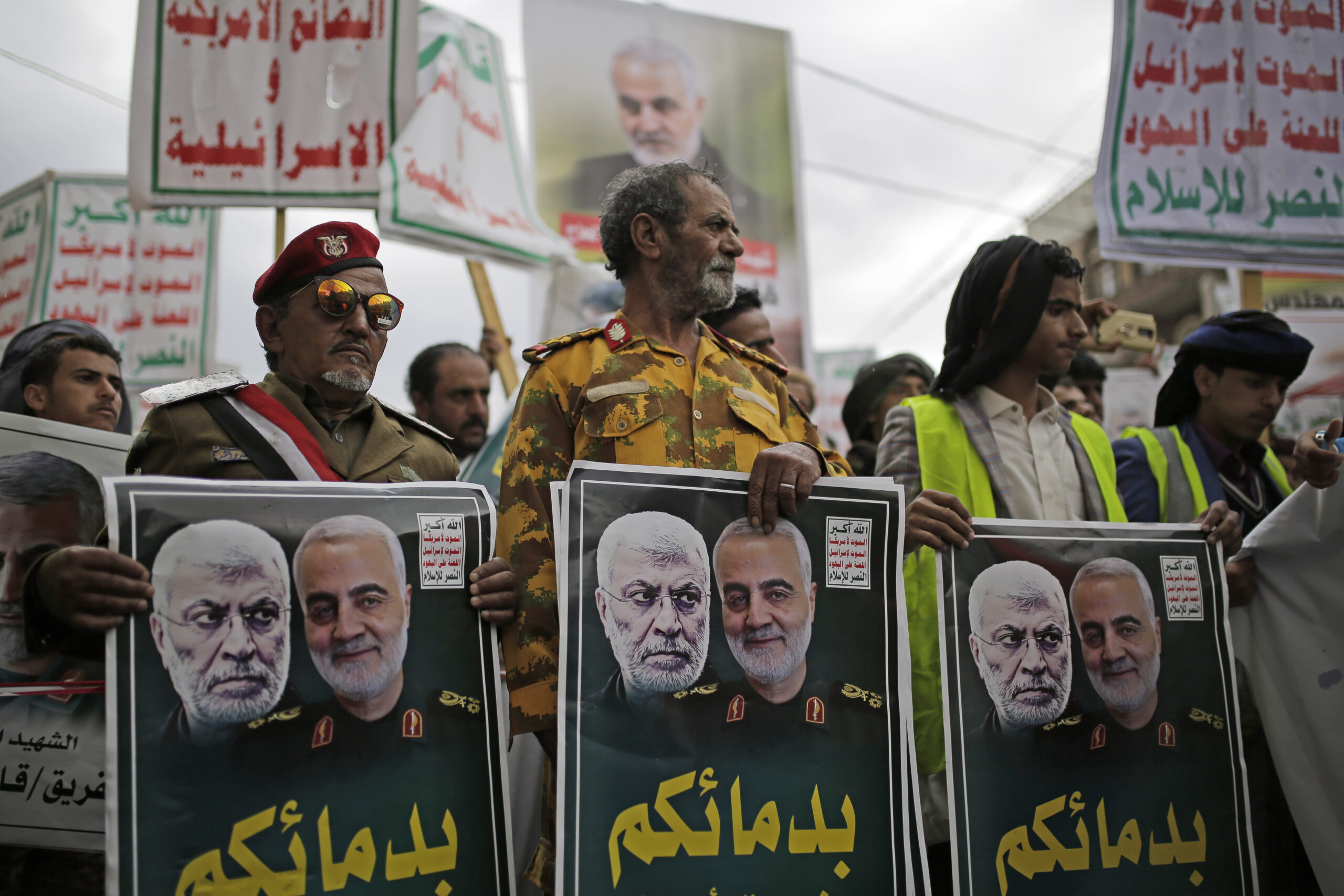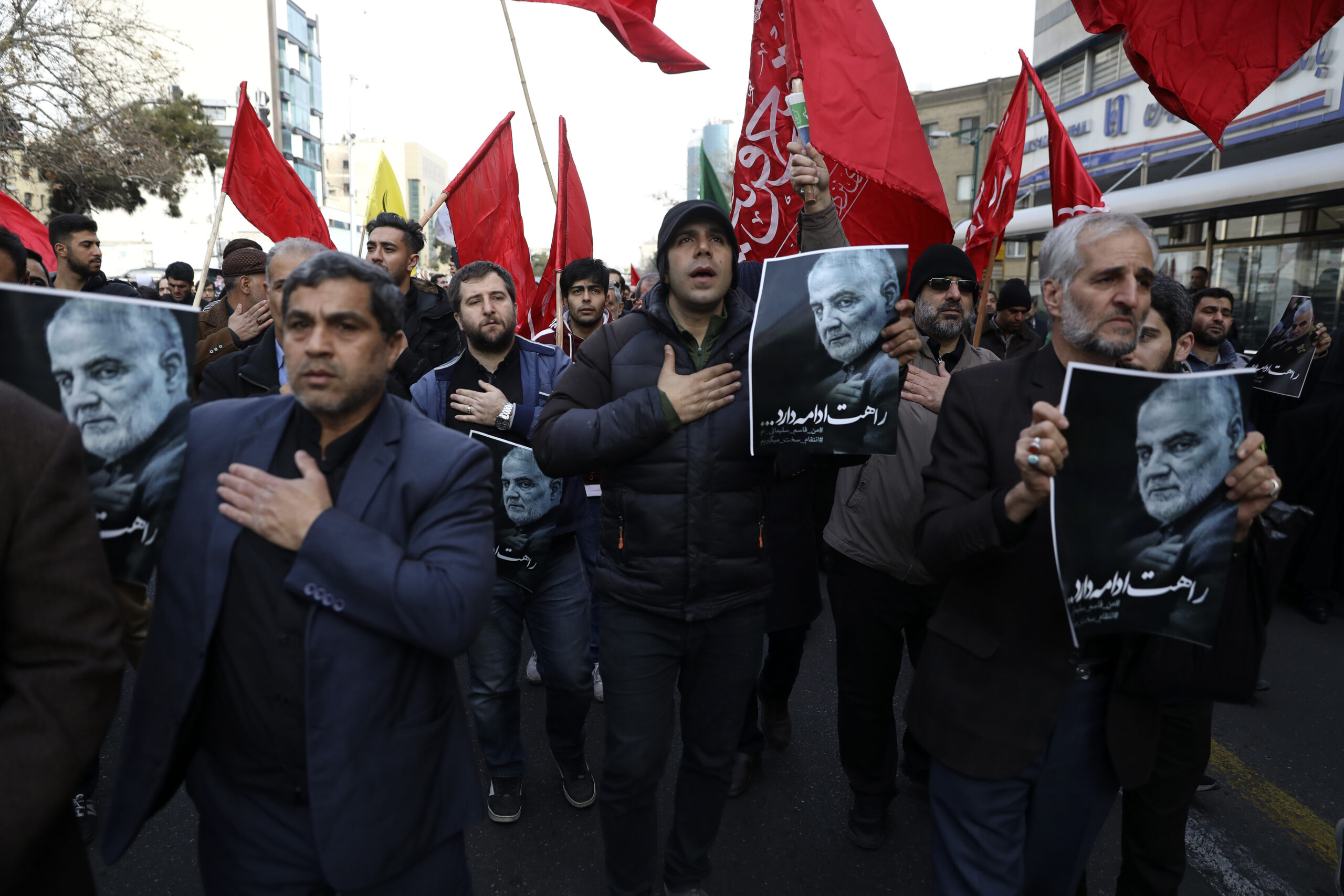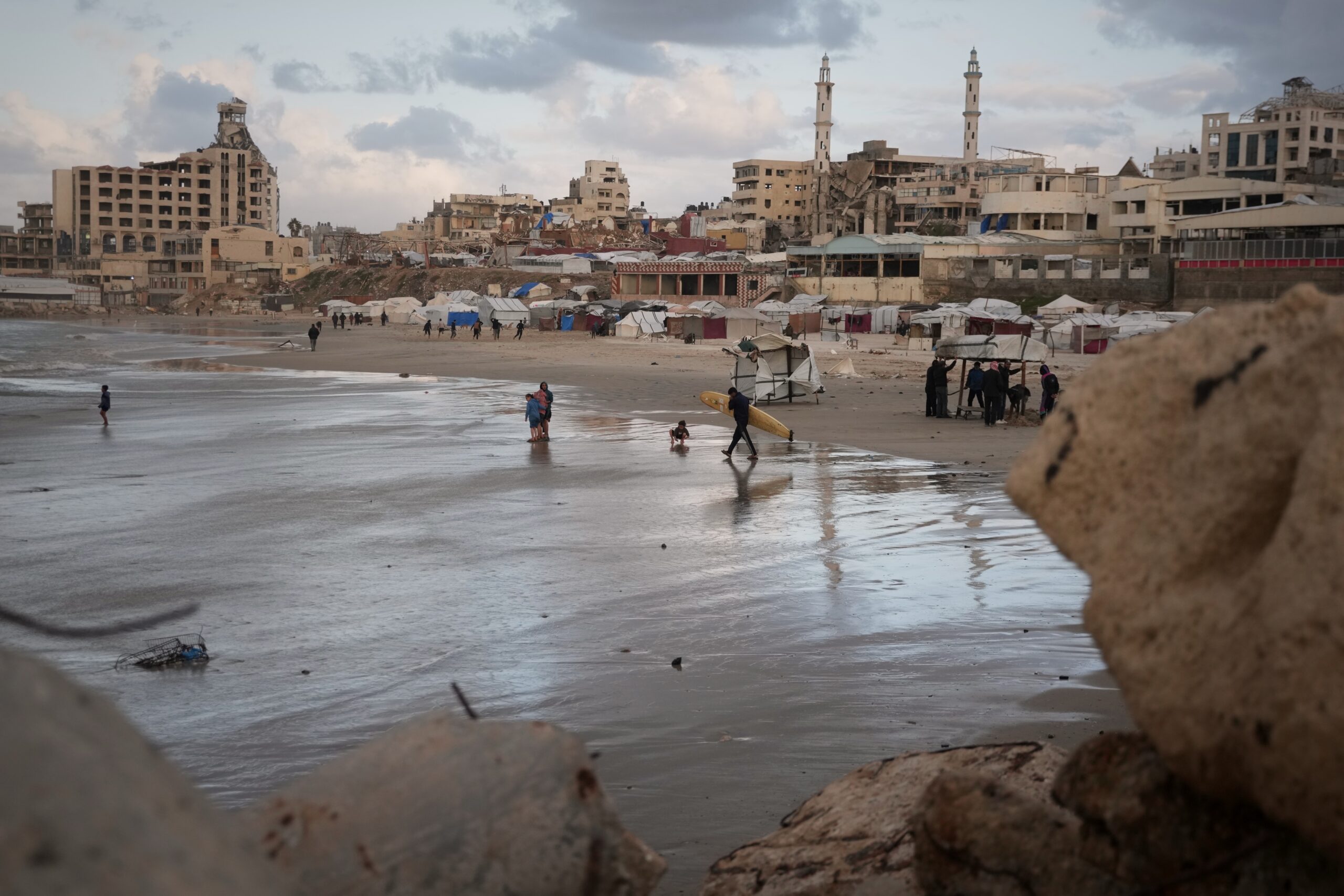U.S.-Iran Crisis Promotes Sudden GCC Unanimity and Common Purpose
GCC states all oppose any escalation with Iran, but it remains unclear if that will help heal other rifts.
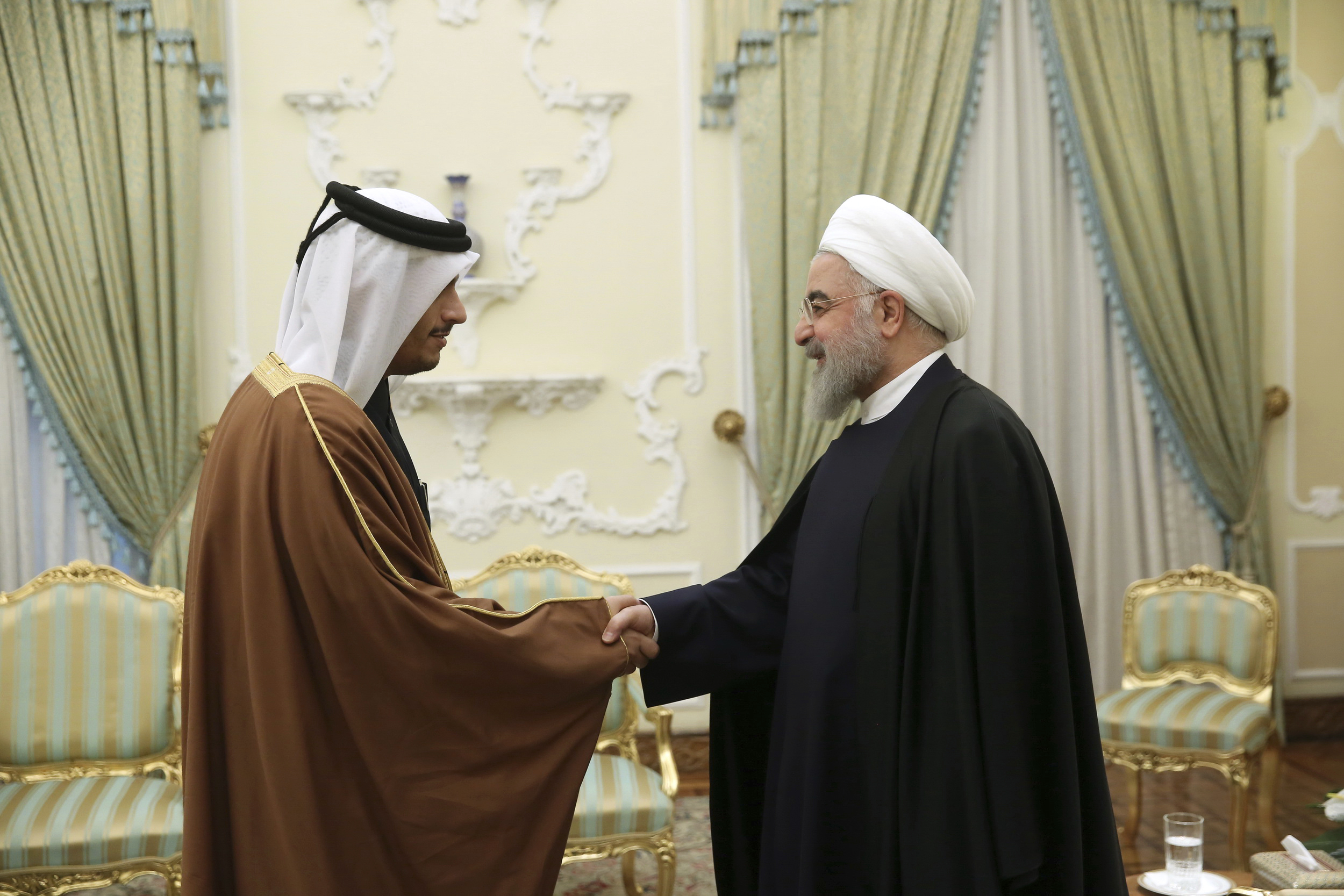
Nothing has united the Gulf Cooperation Council member states in many years like the flare-up of tensions and exchange of attacks between the United States and Iran. All six countries oppose any further escalation of the crisis. And all of them took action of some kind, including constructive diplomatic or public messaging, to try to ensure this didn’t happen. It is the most unanimous, and in some ways most united, the GCC has been on any major issue since at least the boycott of Qatar by Saudi Arabia, the United Arab Emirates, Bahrain, and Egypt began in June 2017. And it comes on the back of additional moves to try to heal the GCC rift and repair the Gulf Arab states’ ability to operate with a degree of common purpose.
Before the recent crisis began, all the Gulf countries had expressed some degree of alarm about rising tensions between Tehran and Washington. Tehran’s political and strategic crises – with anti-Iran sentiments rising in Lebanon and Iraq, as well as anti-regime protests domestically – helped prompt moves to restore travel and cooperation between Bahrain, Saudi Arabia, and the UAE and Qatar. But the buildup to the crisis did not produce the strong sense of unanimity and implicit common purpose that emerged following the January 3 U.S. precision guided drone strike that killed Major General Qassim Suleimani, Islamic Revolutionary Guard Corps Quds Force commander, and Abu Mahdi al-Muhandis, leader of the pro-Iranian Kataib Hezbollah Iraqi militia, and several other senior Iranian and pro-Iranian militia figures.
That attack, and concern about Iran’s potential response to the targeted killing, produced a flurry of Gulf Arab diplomatic and public diplomacy activity that left little doubt that, for all their differences, the GCC countries shared the urgent common goal of reducing temperatures and curbing the risk of a wider set of military clashes and even a U.S.-Iranian war. Given their differences regarding relations with Iran and varying positions in the regional strategic landscape, Gulf Arab countries were both able and required to play significantly different roles in pursuit of that mutual goal. This allowed for a range of Gulf Arab interventions from varied vantage points that provided different forms of leverage or influence.
Qatar has always been compelled to maintain reasonable relations with Iran because of the shared natural gas field between the two countries that provides most of Doha’s income. Since the boycott began, Qatar has also increasingly relied on Iran for access to critical commercial air routes and other, more subtle, forms of support. So it is no surprise that Qatari Foreign Minister Mohammed bin Abdulrahman al-Thani traveled to Tehran the weekend after the attack to express condolences to Iranian President Hassan Rouhani. Because Doha’s position was very strongly in favor of restraint and de-escalation, presumably there was at least some form of indirect messaging to Tehran from one of the few countries that considers itself a very close ally to the United States and a warm friend of Iran.
The GCC squabble did slightly reassert itself in the middle of the efforts to avert a larger crisis between Washington and Tehran when some Saudi media outlets made much of the claims that the drone strike that killed the Iranian commander and his allies was launched by U.S. forces from Al Udeid Air Base in Qatar. The implication is that there was a form of duplicity in Qatar’s supposed complicity in the attack followed by statements of sympathy and calls for restraint. But, in fact, even if the strike was launched from Al-Udeid, it is extremely unlikely that Qatari officials played any role in the decision making at any stage.
Oman and Kuwait also maintain better relations with Iran than the other three GCC members and seemed to be implying that they were ready to proactively help moderate tensions. Oman said it was actively seeking to mediate between the parties to restore calm. It ultimately appeared to conclude room for such a direct mediation did not actually exist, but was clearly willing to play that role when possible. Kuwait was apparently initially directly critical of the targeted killing, although those statements were deleted after being posted, and the country has repeatedly called for restraint and calm. Kuwait also quickly asserted that the drone strike was not launched from its territory.
More instructive were the responses by Iran’s primary regional antagonist, Saudi Arabia, as well as the UAE and Bahrain. UAE Minister of State for Foreign Affairs Anwar Gargash tweeted that it was imperative to put “wisdom, balance, and political solutions above confrontation and escalation.” Almost all major UAE newspapers also called for de-escalation and the restoration of calm. Saudi Arabia, too, called for restraint, said it was not consulted in advance about the attack, and said Deputy Defense Minister Khalid bin Salman would travel to Washington in the coming days to urge restraint. Bahrain essentially echoed the sentiments, although in a more muted fashion.
It’s not surprising that Qatar, Oman, and Kuwait were keen on avoiding the U.S.-Iranian escalation. But it is more noteworthy that Saudi Arabia, the UAE, and Bahrain – which regarded Suleimani and his Iraqi clients as deadly enemies – would be similarly committed to de-escalation and the avoidance of further conflict. Yet the prospect of a broader regional conflict has been alarming to these states for many months, if not years.
In the summer of 2019, Iran’s “maximum resistance” campaign of deniable attacks on pro-U.S. targets accelerated. The UAE, which had long been quietly calling for a “political path” forward with Iran along with the sanctions campaign, then reached out to Tehran with diplomatic exchanges designed to create a bilateral dialogue. After the Iranian attack on its oil facilities on September 14, 2019, Saudi Arabia, too, began its own low-key exploration of the potential for direct back-channel communication with Tehran.
Whatever their specific views about and bilateral relations with Iran might be, all the Gulf Arab states are nervous about the impact any broader conflict between the United States and Iran might have on their interests. The UAE, Bahrain, and Saudi Arabia could find themselves caught in the crossfire and subjected to direct Iranian attack as indeed happened in September. Qatar, Oman, and Kuwait have their own concerns about political and even economic destabilization arising from increased violence. And even those states that most strongly oppose Iran’s regional role and see a strategic opportunity arising from Tehran’s ongoing crises realize that they have little to gain and much to lose from a further intensification of armed conflict with Tehran.
The GCC was founded in May 1981 in direct response to the formation of the Islamic Republic following the revolution in Iran. From its outset, then, the Islamic Republic has been perceived by the Gulf Arab countries as a unifying threat. Over time, the perceptions of that threat and the best ways of dealing with it have significantly diverged and have been joined to other differences in interests and perspectives between Gulf Arab countries. However, given that the emergence of the Islamic Republic was the proximate cause for the Gulf Arab countries to unite in the first place, it is logical that a major crisis involving Iran has been the cause of a sudden eruption of unity of purpose and common interest between countries that have often found themselves on opposite sides of major regional developments in recent years. How far this will go to help heal GCC divisions, if at all, remains to be seen. But it is at the very least a salutary reminder of how much the Gulf Arab countries still have in common and how strongly their interests can converge in times of crisis.
The views represented herein are the author's or speaker's own and do not necessarily reflect the views of AGSI, its staff, or its board of directors.



